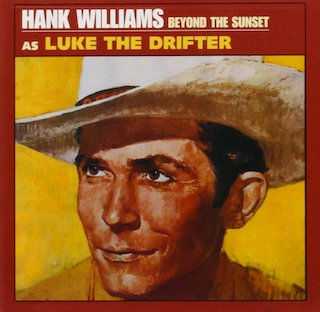
Hiram "Hank" Williams was a celebrated American singer, songwriter, and musician. He is regarded as one of the most significant and influential American singers and songwriters of the 20th century. Williams recorded 55 singles that reached the top 10 of the Billboard Country & Western Best Sellers chart, five of which were released posthumously, including 12 that reached No. 1, three of which were released after his death.
"Half as Much" is an American pop standard song written by Curley Williams in 1951. It was first recorded by country music singer Hank Williams in 1952 and reached number two on the Billboard Country Singles chart.
"Ramblin' Man" is a song written in 1951 by Hank Williams. It was released as the B-side to the 1953 number one hit "Take These Chains from My Heart", as well as to the 1976 re-release of "Why Don't You Love Me". It is also included on the 40 Greatest Hits, a staple of his CD re-released material.
"Honky Tonk Blues" was a hit country and western song written and performed by Hank Williams. The original 1952 recording was a major hit, and it later became a hit for later-day superstar Charley Pride.
"Long Gone Lonesome Blues" is a 1950 song by Hank Williams. It was Williams' second number-one single on the Country & Western chart. "Long Gone Lonesome Blues" stayed on the charts for 21 weeks, with five weeks at the top.
"Men with Broken Hearts" is a song written and recorded by Hank Williams under the pseudonym "Luke the Drifter." It was released on MGM Records in 1951.
"My Bucket's Got a Hole in It" is a song widely attributed to Clarence Williams, who obtained a copyright in 1933, although the melody was recorded under various names years earlier. The song became popular performed by Hank Williams for MGM and reached number 4 on the country chart in 1949.
"My Heart Would Know" is a song written and recorded by Hank Williams. It was released as the B-side to "Hey Good Lookin'" in June 1951 on MGM Records.
"Dear John" is a song written by Tex Ritter and Aubrey Gass. It is best remembered for being the A-side to Hank Williams' number one hit "Cold, Cold Heart" in 1951 for MGM Records.
"I Could Never Be Ashamed of You" is a song written and recorded by Hank Williams. It was released as the B-side of "I'll Never Get Out of This World Alive" on MGM Records in November 1952.

Hank Williams as Luke the Drifter is an LP by Hank Williams released by MGM Records in 1954. It features narrations that Williams released under the pseudonym Luke the Drifter.
Pictures from Life's Other Side" is a traditional song popularized by Hank Williams under the pseudonym "Luke the Drifter." It was released on MGM Records in 1951.

"Just Waitin" is a song written by Hank Williams and released as the A-side of "Men with Broken Hearts" in 1951 on MGM Records. It was released under the pseudonym "Luke the Drifter."
"Beyond the Sunset" is a song written by Blanche Kerr Brock, Virgil P. Brock, and Albert Kennedy Rowswell. It was released as a single by Hank Williams under the pseudonym Luke the Drifter in 1950.

"Too Many Parties and Too Many Pals" is a song released by Hank Williams under the pseudonym Luke the Drifter. The song dates back to at least 1926 when it was recorded by a number of artists including the Bar Harbor Society Orchestra. It had also previously been recorded and released in 1948 by Bill Haley as Bill Haley and the 4 Aces of Western Swing; this was Haley's first professionally released single.
"Help Me Understand" is a song written by Hank Williams and released under the name "Luke the Drifter" on MGM Records in 1950.
"No, No, Joe" is a song by Hank Williams. It was written by Fred Rose and takes aim at Soviet leader Joseph Stalin.
"Please Make Up Your Mind" is a song written and recorded by Hank Williams and released as a "Luke the Drifter" single in 1952.
"I've Been Down That Road Before" is a talking blues song by Hank Williams. It was released by MGM Records under the name "Luke the Drifter", which was a pseudonym for Hank's recitations. It was another dose of the sage advice that Luke the Drifter seemed endlessly capable of dispensing - and Hank Williams seemed just as capable of ignoring. Biographer Colin Escott calls it "perhaps the most directly biographical song he ever wrote, and leaves us guessing at the incidents that inspired it." He recorded it in Nashville on June 1, 1951 with Fred Rose producing and backing by Jerry Rivers (fiddle), Don Helms, Sammy Pruett, Jack Shook, Ernie Newton or "Cedric Rainwater", aka Howard Watts (bass), and possibly Owen Bradley (organ).
"Be Careful of Stones that You Throw" is a song recorded by Hank Williams. It was written by Bonnie Dodd.



